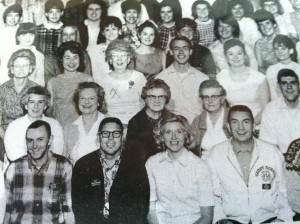There are moments of perfection in life, moments you wish could be frozen forever. Such was the hour this past Sunday as I walked with my daughter and her boyfriend on a now familiar path through the countryside on the southern border of Germany.
Everything about the walk was perfect. It had been snowing all morning, but stopped just prior to our walk leaving the landscape and architecture blanketed in snow white. The light was sensual, the conversation perfectly appropriate.
The land itself was filled with abundant signs of fertility and beauty. Couple’s walked by; a train passes and as it moves on we hear the music of silence. Shalom. May it never end.
But of course, it does end. They return to their homes west of me, and I to my room. Later that night, I read this from a friend who lives in Africa: Back in Nairobi from a mind blowing trip into South Sudan and Sudan. I can claim to have faced hardship from rare time to time but I can now never claim to know suffering for my beliefs or suffering period. Great to give all my family a big ole hug tonight. I’m naive, not knowing any details of the suffering faithful in Sudan, but his comments shake me.
This morning my devotions take me to I Peter and multiple exhortations about the goodness of suffering, including this one. I stare out the window of my room, looking across the road to a neighbor’s house, knowing full well that the owners spend their days nurturing plants, trimming hedges, pruning trees for fruit to grow, as they grow old together. Their world, and mine, is far from the suffering of which Peter speaks, let alone Sudan, or Syria, or countless other places.
…or other times. This very place where my moment of Shalom occurred was bombed into oblivion during WWII, because it was an industrial area, a hub for aviation production, filled with factories supplied with labor by prisoners from Dachau and other concentration camps. 70 years ago, there was fear, hate, war, deprivation, death. Now, same place, different time, and three American walk through rustic simplicity and beauty with hearts full of peace and joy.
My God – what kind of a world is this, where one is born to shattering bombs, another to blossoms and paths through the forest? The juxtaposition of shalom and suffering is one of the great tensions and mysteries of life, birthing questions asked not just by Christ followers, but by all people everywhere. These realities create questions, but there are answers, and they come from two of my favorite people, Jesus and Gandalf.
Jesus tells Peter that the end of his life will be characterized by him being led, against his will, into places he’d prefer to avoid. When Peter hears this he immediately points to John and says, “what about him?” exposing the human hearts longing for equanimity and our own sense of justice. Jesus’ answer is disturbingly comforting: “If I want him to remain until I come, what is that to you. You follow me!” This is Jesus’ way of saying, “you’d better not compare yourself and your lot in life with that of those around you, because if you do, you’ll drive yourself crazy. You have a life. You have a calling. You have a context. Get on with it, and live it well, with as much joy as possible.”
And then there’s Gandalf in “The Fellowship of the Ring.” Frodo, finding himself in a context he’d never have chosen, said “I wish none of this had happened.” Gandalf’s response is timeless wisdom: “So do all who live to see such times, but that is not for them to decide. All we have to decide is what to do with the time that is given to us.” His words are ripe with meaning beyond his words:
1. What will I do with the time I’ve been given? – This isn’t WWII. It’s an era of drone strikes, and terror threats, of greed and superficiality, of addictions to work and stuff, of relational poverty and material abundance. This is the time of our lives, and the question we must ask is what it means to live faithfully right here in the midst of this particular kind of insanity, for the truth is that every time and season has its own challenges and opportunities, and ours is no different. It’s no good guilting ourselves over living where we do. It no good indulging callously either. Rather, we must ask the question: what does faithfulness look like in this time? The answer will set us swimming upstream against several prevailing tides of culture, and such swimming is hard work, but that’s the calling.
2. What will I do with the body I’ve been given? I have strengths and weaknesses. I have sexual longings. I face the inevitability of aging, but at a time and place where I have the knowledge and resources to care for my body. Will I? Will I submit my sexual self to God’s revelation? Will I do the things I know contribute to health? Will I seek to be a person of blessing when health leaves me?
3. What will I do with the gifts I’ve been given? Everyone has strengths, particular abilities that come easier and shine brighter. Our lives our fullest to the extent that we find those gifts and develop them, so that we might bless others. After all, we’re invited to the incredible calling of being light in a dark world, and we’ll do that best by finding our strengths and using them (a bigger topic, for a different time).
4. What will I do in the place I’ve been given? Germany circa 1935 is very different from 1942, is very different from 2012, but our destiny is determined by the convergence of place and time. Most who read these words find themselves in places of abundance and ease, but these elements can either be blessings we use to serve a dark world, or drugs that lull is into complacency. We who are so richly blessed by our particular time/place context must recognize that much is required of us, that we’re to use all the resources at our disposal to serve and bless our broken world. Whether I’m free to teach on two or three continents every year, or confined to a prison like Dietrich Bonhoeffer is not mine to choose. Mine is to be faithful with the place I’ve been given.
There’s a large extent to which none of us choose time, body, gifts, place – they’ve been given to us. This is perhaps the most important thing for me to remember in a world where, on any given day, any given person might face either shalom or suffering, breathtaking beauty or heartbreaking suffering. It was Simone Weil who said that great beauty and great suffering are the two means through which God transforms us. How, to quote Job, can we accept either one without accepting the other?
This morning as I write, the snow’s turned to Seattle-ish rain, and the white blanket’s disappeared. “Ah” I say to myself, “normal has come again.” The gift of shalom lingers though, settling into the recesses of my soul to bring gratitude, joy, and faith. These gifts will be needed later for other times and seasons, and I pray we’ll all have the grace to meet those days too as people of hope because this is, whether in suffering or shalom, always our calling.











